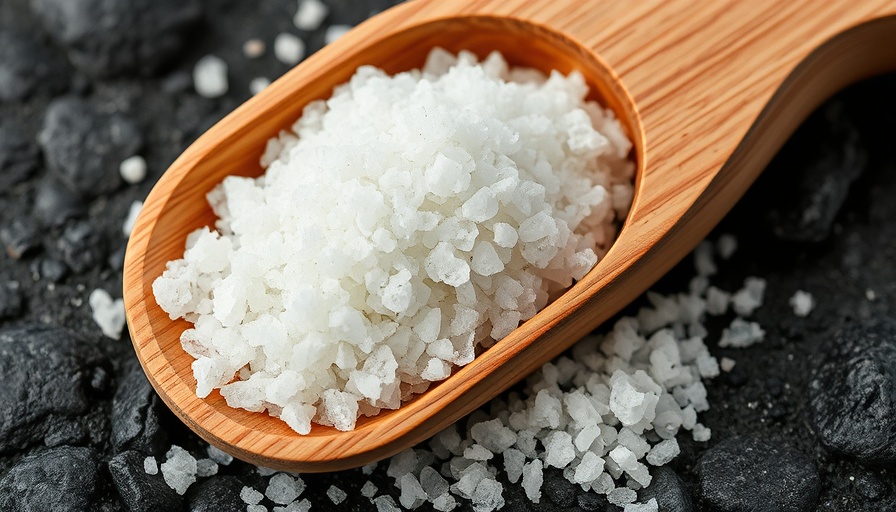
Understanding the Salt-Potassium Balance
In today's dietary landscape, the balance between salt and potassium is more crucial than ever. Physical inactivity contributes to over 10 million years of healthy life lost globally, but our dietary choices account for an astonishing 20 times that figure. This further underlines the importance of addressing how we approach our nutrition. One key issue is the overwhelming consumption of sodium, where high salt intake emerges as a leading risk factor for serious health problems.
The Dangers of Excess Sodium
High levels of sodium intake—often through processed and fast foods—have been linked to hypertension, heart disease, and stroke. Despite recommendations from the American Heart Association to limit sodium intake to under 1,500 milligrams a day, the average American consumes over four times that amount. Alarmingly, 98.8% of Americans surpass even this elevated metric. Such statistics highlight the urgency of a dietary shift.
Why Potassium Matters
Potassium acts as a counterbalance to sodium and is vital for our health. Its deficiency is concerning: less than 2% of U.S. adults meet the recommended intake. In our evolution, our ancestors consumed upwards of 10,000 milligrams of potassium per day. In contrast, the modern diet—rich in processed foods and lacking in potassium—has left the majority of the population potassium-deficient. A mineral that can lower blood pressure and reduce the risk of stroke is tragically missing in many diets.
Making Healthier Choices
To combat this growing health issue, it's essential to pivot away from the traditional salty diet. Incorporating more fruits, nuts, and vegetables into our meals can naturally enhance potassium intake while reducing sodium. The benefits of adopting a potassium-rich diet stretch beyond just individual health—they contribute to public health as well.
Empowering Change
The journey towards healthier eating can begin today. By swapping table salt for potassium chloride or simply prioritizing whole, unprocessed foods, we can regain the balance that our bodies have adapted to over thousands of years. Embracing this change can significantly impact our health outcomes, paving the way for a longer, healthier life.
 Add Row
Add Row  Add
Add 




Write A Comment